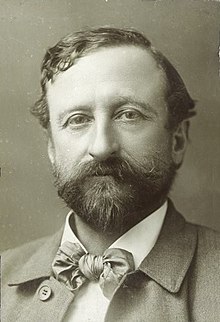William Maloney
| Dr William Maloney | |
|---|---|
 |
|
| Member of the Australian Parliament for Melbourne |
|
|
In office 30 March 1904 – 27 August 1940 |
|
| Preceded by | Malcolm McEacharn |
| Succeeded by | Arthur Calwell |
| Personal details | |
| Born |
12 April 1854 West Melbourne, Victoria |
| Died | 29 August 1940 (aged 86) Melbourne |
| Nationality | Australian |
| Political party | Australian Labor Party |
| Alma mater | University of Melbourne |
| Occupation | Medical doctor |
Dr William Robert Nuttall Maloney (12 April 1854 – 29 August 1940) was a long serving Australian Labor Party member of the Australian House of Representatives for 36 years from 1904 to 1940.
Born into a wealthy family in West Melbourne, Maloney was educated in the Melbourne private school system, the University of Melbourne and St Mary's Hospital, London, graduating as a Medical Doctor. Returning to Melbourne in 1888, Maloney divided his time between his obstetrics practice and agitating for social reform. It was during this period that he acquired the nickname that he would retain throughout his life, the Little Doctor.
Elected to the Victorian colonial Legislative Assembly as the Member for West Melbourne in April 1889, Maloney showed his radical nature by introducing one of the first Bills advocating women's suffrage in the British Empire. He also found the time to establish the Medical Institute, which provided free medical treatment for the poorer denizens of Melbourne.
Maloney resigned from the Assembly in November 1903 to stand for the Division of Melbourne at the 1903 federal election, narrowly losing to the opposing Protectionist Party candidate Malcolm McEacharn but, following a protest, largely on irregularities relating to postal votes, the 1903 result was voided and a by election run in 1904, which Maloney duly won.
The Division of Melbourne became a safe Labor seat and Maloney was easily returned in forthcoming elections, including standing unopposed in 1929 and 1937. Retiring before the 1940 election and dying later that same year, Maloney holds the distinction of being a Member of Parliament for 36 years without holding ministerial office, the longest period spent as a backbencher by any member of the House of Representatives.
...
Wikipedia
